How To Deliver Value For An Invisible Product With Keith Farley
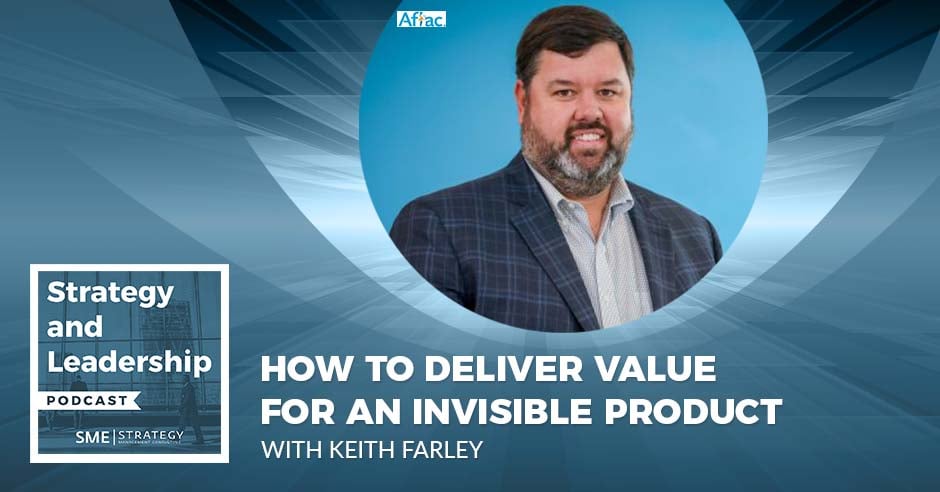
It is already challenging to sell a tangible item to your target market. How hard would it be if you are selling an invisible product? Keith Farley, SVP at Aflac, joins Anthony Taylor to share his strategies for selling something that does not technically exist: insurance claims. He explains how they focus instead on providing quality customer experience and building a healthy workplace culture by harnessing the power of current technological innovation. Keith also shares how they keep their customers in the loop while their claims are being processed and how they use a duck mascot to create meaningful connections with everyone.
Listen on Spotify: https://open.spotify.com/episode/2VRT4oyud9ANmaB03GP3Vt?si=m4npu1WfQoif-GrKJJ6AaA
Listen on Apple Podcasts: https://podcasts.apple.com/ca/podcast/how-to-deliver-value-for-an-invisible-product-with/id1202449526?i=1000641416368
Want to continue the conversation with other leaders around the world? Join our Strategy and Leadership community.
https://strategy-and-leadership.mn.co
► Subscribe to our channel for weekly videos on strategy & leadership: https://www.youtube.com/channel/UCOHLNRrpk3rGUdg7qUQjiog
➡️ Looking for a sample agenda for your strategic planning offsite? https://www.smestrategy.net/blog/sample-strategic-planning-agenda
// Connect with us:
► Contact us: https://www.smestrategy.net/contact
► Connect with Anthony on LinkedIn: https://www.linkedin.com/in/anthonyctaylor604
// About SME STRATEGY CONSULTING:
SME Strategy is a management consulting firm that specializes in helping organizations develop and implement their strategic plans. We work with teams to facilitate conversations about strategic direction and business strategy so that our clients can focus their energy on what will move them forward faster.
► Work with us: Are you looking for someone to facilitate your strategic planning process? https://www.smestrategy.net/strategic-planning-facilitator
► Check out our Strategy & Leadership Podcast: https://open.spotify.com/show/4yND4JKofh64gcvyvcLMqW
► Check out our online course on how to successfully lead your next strategic planning process: https://courses.smestrategy.net
---
Watch the episode here
Listen to the podcast here
How To Deliver Value For An Invisible Product With Keith Farley
In this episode, I'm joined by Keith Farley. He spent 7 years at Stanley Black & Decker and has spent almost 15 years at Aflac where he's a Senior Vice President for their largest US segment. This is an awesome guy so far. Keith, what's happening?
How are you, Anthony? It’s good to talk to you.
You are calling from Atlanta. It's such a cool place to work. I see that your entire career has spanned in the Georgia area. I did my best to provide a good bio about you. You even worked at another company that is very Atlanta-grown. Why don't you tell our audience a little bit about yourself both professionally and personally, and then we'll get into the interview?
I grew up in Chicago but then moved to Atlanta when I was ten so I consider Atlanta to be home. I went to Auburn University. From there, I did my first corporate job, which was at Coca-Cola. I did that while at Auburn. I got one of the coolest jobs in the world. I spent the summer at headquarters and then the next nine months, I was on campus.
The cool thing about my job there at Coke was I got a parking pass that was a vending parking pass to go check on any vending or fountain machine anywhere on campus. That meant I could park anywhere on campus at any time and leave my hazard lights on. Whatever they paid me was not worth what the parking pass was worth. That was the value of that job because I could park anywhere on campus with that. It was like having a police car. I did that for a year and then started my career out of school with Black & Decker. I worked on the DeWalt brand there and spent seven years at DeWalt.
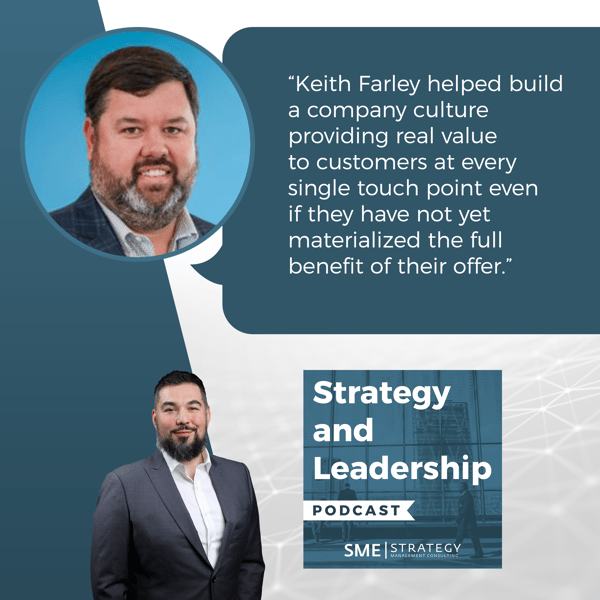
I moved over to Aflac several years ago. I started in marketing and then moved in from marketing to a transformation. I started our innovation team. I moved to Northern Ireland to start Aflac Northern Ireland, which was our first European presence of employees. I then moved back to Columbus, Georgia. We were about an hour and a half from Atlanta. This was where Aflac was founded in 1955 and remains. That's a quick bio of what I've been up to.
I am curious about a couple of things. One is the difference between working at Black & Decker and DeWalt versus working in the various segments of Aflac, which if you want to talk about that. I'm also curious about your fifteen-year career in an industry that's had to evolve, not only the product but how it's serving its customers and then the experience of growing that across geographies. Maybe I'll ask you this. What is your favorite part of your job? I'm assuming that you don't have this super parking pass that they give you from Aflac like you might have had with Coke.
I can't park anywhere on campus anymore like I used to be able to. The coolest part of my job, and this is unique to health insurance, is that what I do and what we do here is people who come to us are oftentimes having one of the worst days of their lives. They've been diagnosed with a terrible disease, lost a loved one, or been hurt in an accident. These are people who are in a rough period in their life.
What I find most fulfilling in the job here compared to other jobs that I've had is we get to be there and be the only good thing that happens that day potentially to them. We get to ease their burden, take a little bit of load off, and help them understand their options. We can give them some financial assistance if they're covered and all those types of things. We meet people at a time in their lives when they need someone and to me, that is the most fulfilling.
At DeWalt, we help a guy or a girl drill more holes faster to get home to their family, cut more wood with our saws, and things like that but we weren't meeting people on their darkest day. Here, that's what we do. I love the opportunity that we've got and that my team has the fulfillment that we get from helping people when they need it, probably more than any other brand a lot of folks have worked for, including myself.
I do like the compare-and-contrast kind of thing without giving any trade secrets or anything like that. You mentioned transformation. Specifically with Aflac, in your fifteen years within the company, how have you seen the organization transform? I'm curious. Since it’s mission-focused, how does that mission come into play when you are looking at transformation initiatives or how you can serve the customer better? Do you bring it up in conversation? Is it understood by everybody? How does it impact business decisions on a day-to-day basis? Start with the top part.
The way that I've seen us change in the last couple of years has been a lot more digital solutions. Mobile solutions, web solutions, and even on the backend how we brought in AI to do things, I've seen that change. If I think back to when I started in 2009, so much has changed from that standpoint. We've progressed so much. We've also expanded our products, bought some other companies, and had some acquisitions. That has changed in the years I've been here.
What hasn't changed though is getting back that first comment that I was making around. When people come to us, that hasn't changed. It's still an opportunity for us to make a difference in their day and their life. The mission hasn't changed but the way that people interact with us has. To some extent, the products that we sell have. We've kept the first product we ever had that we launched back in the ‘50s. It was a cancer product. That is a product that pays you cash if you're diagnosed with cancer. You can deal with all the expenses around the cancer.
A major medical that folks have here in the US pays the doctors and hospitals. What Aflac does is we give you cash and it helps pay your mortgage, electric bill, car payment, gas, groceries, or whatever it is. That hasn't changed. With all the technology that's changed around us and how people have interacted with us, the very core of what we do hasn't changed. I like that from a consistency standpoint. That's what you want in an insurance company.
The way they work is you're paying money in that you expect that they'll be there later when you need them. Hopefully, you never need them but God forbid if you do, you want to make sure that they're stable and consistent. I like that we've had that consistency in the time that I've been here and the entire life of the company.
It's been interesting to see how customers who have purchased have changed and how they want to service their policies. We have mobile apps where people file their claims online and don't talk to anyone. We have other people that want to talk to someone. They want to understand what their coverages are because they're going through something.
As a manager, and if we look at it from more of an operational piece like you've spent in innovation and change, partially in robotics and back into innovation, how do you approach that? How do you have those conversations with your teams? There are some clients that we work with facilitating strategic planning. They've been doing something for so long going through that process of innovating and evolving as a company.
They might not have the cashflows to buy somebody but they have to adapt to future market needs. Otherwise, they'll shrink their market. What were the conversations that you had with your team? How do you approach innovation? What are maybe some of the practical things that you've put in place to support that iterative as well as transformational growth?
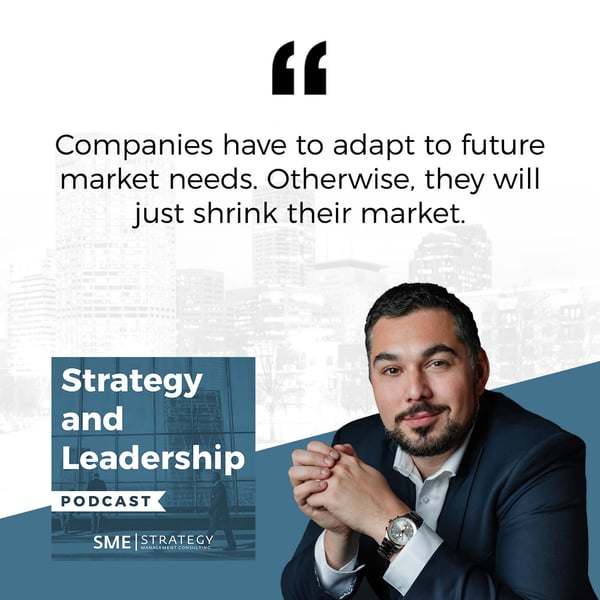
Since we're in the service industry, we don't sell a product that's physical. You can't touch it or feel it. If I compare it back to my days at DeWalt, you could make an opinion of a DeWalt power tool based on how many holes it makes someone charge or how many feet of lumber can cut on one charge, or if you drop it and pick it up, does it still work? Every moment that you use the tool, which for most folks is every day in the DeWalt professional world, every day, they’re getting to interact with the brand and have an opinion of if this is a brand that they like.
With us, there is nothing physical. There's nothing you hold, see, taste, or smell. You might buy it and then not use it for a long time if ever. You've bought protection or a safety net that you may or may not need. That means what's important for us is our service because that's all we sell. We're giving you that safety net and coverage but it all comes down to the service.
When we approach innovation here at Aflac, we’ve got to look at, “If the thing that we sell is service and the relationships and empathy that we have don't automate and innovate that, innovate everything and automate everything you can around that, frees up more time to deal with the customer.” As an example, if you need to update your address with Aflac, there's an opportunity for innovation there. There's an opportunity for us to tap into big data, look at AI, and say, “We can help you.” There's the ability to do that in our mobile app. That's something that you probably don't need a human with. You don't need a relationship or empathy.
There are types of things like adding a policyholder or deleting the birth of a child. You want to add your child. Maybe your child has aged out and you want to delete your child. Also, things like changing your address, updating your bank account information or making a payment. There's plenty of room for innovation and digital experience.
If we do those things and help innovate them, that frees up our time for those uniquely human experiences like when you have that bad day and you need to make a claim or want to have a conversation. That's how I approach innovation here at Aflac. We don't want to innovate away the very things that we're known for and that people come to us for, which is that human experience when something has gone wrong in their lives.
I do want to ask you about how the change went for you when you went from DeWalt to Aflac. What I heard you say is the difference between selling something objective per charge, speed, or reliability versus something subjective and then going from selling the process and everything around the process to the product. One is driven by market and consumer expectations as well as technology as a driver. The other one is pure technology. You get more amps, charge, speed, or what have you. Did you find that transition hard? How was your experience of moving from a product-based company to a service-based company?
I didn't realize when I was making the change what a big difference it would be. I was moving from one big brand in opportunity and marketing to another big brand in opportunity and marketing. To me, they looked similar. It's one Fortune 500 to another Fortune 500. It’s exactly what you hit on. I was too young at the time to realize this. I was below 30. I'm changing from physical consumer goods to financial services. What will that be?
The only thing in common between the two would be speed. DeWalt's all about speed and drilling your saw or whatever it may be. Aflac's all about speed in terms of the payments that we want to get to you and get the cash in your pocket. After that, everything else falls apart. DeWalt's a product you use every day. Insurance is a product you don't have here at Aflac. In DeWalt, you can hold, feel, and constantly make judgments if it's doing what you want. Aflac is not something you can hold and feel. It is pretty different.
What I realized is for DeWalt, the product was the physical product that you were holding and using. At Aflac, the product is the customer experience. I've never worked for a company before where the whole product you're selling is customer experience. Even Delta Airlines, the product is the whole experience but the flight is a big part of it.
How was the boarding process? Were you on time? How was the flight? Was there turbulence? Did you get nervous? It’s all of those things. They have a product there. Ours is when you need us, are we there for you? We focus here on how we can make sure that we're there for you and that we're fast and quick and give you all the coverage you need. That was probably a big change that I had underestimated when I was switching over.
Context is everything. We think of the mentality of an employee. Without giving anything proprietary away, how does the company communicate that? What are the processes, systems, and structures for everyone in the organization to know, “Here's not necessarily our strategic priorities but here's our brand, company, or product values?” How does that get integrated with an organization so that when somebody comes in, they understand how we do things?
Every single organization is trying to deliver on its promise. What I find senior leaders are not struggling to do but well-served to do, especially if they have 100 employees, is say, “How can we bring this ethos into the organization?” Some very large brands that we know about have been successful. I'm trying to glean some of the ingredients that our audience might be able to incorporate within their organizations.
One thing to remember for us is any insurance is almost like a subscription model. You're paying a premium every other week or monthly. Our goal is to get you to keep the coverage that if that bad day happens, you're covered, and to constantly keep renewing your subscription unlike consumer product goods or packaged goods. You buy a television and hopefully, it lasts you for 10 or 15 years and you’re good. We're always wanting to make sure that people keep their coverage up to date so that they have their coverage when they need it.
For us in the service organization with our employees, one thing that's very important to us is to have a claims-paying culture. That’s sometimes not what people expect from an insurance company. When you think about when you call your insurance company, a lot of people think it's going to be an argument with their insurance company about why they should or shouldn't get paid.
What we realize is if you pay people the claims, which they're owed, and you pay them quickly, fully, and accurately, they're more likely to keep the products afterward, longer, and are more likely to tell their friends and coworkers. Since we sell most of our products through the workplace, if you tell your coworkers, that's our future target market. It is your coworkers because you bought the product and maybe your coworkers didn't. Since we sell through the employer, that's important.
We find with our call center and claims, we’re constantly looking for ways to pay the policyholder as much and as quickly as we can. It is not because it's good for them, which it is good for them and that's the promise we made, but it's also good for us. That’s because if they have a good experience, they'll keep their subscription and keep buying Aflac. If they don't and have a bad experience, you lose them. They'll tell all their friends and coworkers. Keep in mind, those coworkers are your target audience so it ends up being very important for that reason.
What that looks like when it manifests is I was sitting with one of our claims agents, watching how she uses our systems and seeing what improvements we can make. This person sent in this claim paperwork. She wasn't able to pay all of the claims the way that she wanted. She was frustrated. She was like, “I can't pay this guy for that. I wish I could. It’s terrible. I can’t pay him for this.” It was because what he had happened didn't qualify. Some things did but some things didn't qualify.
She was frustrated she couldn't pay him. I was smiling because I thought, “This is exactly what we want. I don't want you to look for a way to not pay the customer. I want you to be frustrated when we can't pay the customer because whatever happened didn't qualify for whatever reason.” In this case, it was a previous injury that the person already had. We couldn't pay for that previous injury. We could pay for the new stuff that happened to him but not the old stuff he'd already been diagnosed with before having the policy.
The fact that she was frustrated told me we've got the right culture because I want her to look out for the customer and find ways to pay that customer. Culturally, where we bring it in is through a claims-paying culture of saying, “If you take care of the customer, they'll keep the coverage.” That's good for the company and the customer as well.
I find that so interesting, the culture piece of it that you've instituted. What I find so interesting is that payout is the very end of your transaction depending on how you look at the cycle as one thing or a cycle. You guys look at it as a cycle. Whereas some might say, “Selling is the most important work.” This is the most painful part for you as a company but you said, “If we can manage this part and do it well, then it will restart the cycle and allow us to support our customer ultimately.” It's flipping it on its head. They’re like, “We have to pay out this money because it means that they're getting the maximum utilization of the product ultimately.” That's how you drive satisfaction
That's the best part of the process. Paying a claim is the whole reason we exist. Even our salespeople will tell you that. There's nothing that makes them happier than paying a claim because the promise and commitment that they made during the sale has come full circle or fruition and they’ve gotten the payment. I was talking with a friend here who joined a carwash club that had unlimited car washes and he hadn't used it in a month. The carwash club started reaching out to him to say, “Make sure you get your car washed.”
There is nothing that makes insurance customers happier than playing claim because the promise and commitment they made during the sale has now come full circle to fruition.
If you think about it, you're like, “Why would they want him to come there? They're going to have to use soap, water, and all these things. They've got these variable costs.” The reason they want him to use it is that if he doesn't use it for 1 month or 2, he's going to cancel his carwash membership. They have an incentive to get you to use it. We have an incentive and things like a wellness benefit where you get paid to go see a doctor even for a checkup, COVID shot, or dentist. All those things count.
We want to be in the business of giving you the experience of filing a claim. Even if you haven't had a serious illness or a tragic accident, we want everyone to be able to file claims and have that interactivity with the company. To us, it's an open loop. Until we pay that claim, it's an open loop that we haven't gotten to deliver the whole promise to you. We do look forward to the day. We're trying to increase the amount of claims we're paying out. We're sending out reminders to people. If you might have a claim to file, please do so. It's great to work for an insurance company that's set up like that.
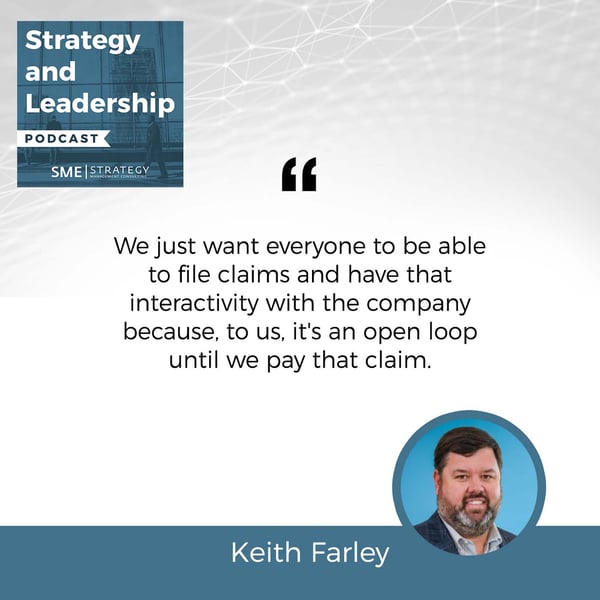
When you're the size and the age that we are, and because of the way that we sell these health insurance products, we have a very big incentive to make sure that we're paying these claims quickly and accurately. I can't imagine working for the alternative where you're trying to figure out a way not to pay. I'm sure those companies exist but not in here. For us, that is the biggest and most important moment. When you pay a claim, that circle is completed and then it starts again.
There are two things. One, when we have our strategic plan implementation packages, we want our clients to use them because that's how we show value. If we show value and they get the value, they want to work with us again. You mentioned that example. We have a small HSA or Health Spending Account at our company. I'm on my wife's benefits. I try not to get sick. I was like, “It’s such a pain in the ass to do this stuff.”
I went through it and the thing got processed like that. I was like, “I should go to the chiropractor. I should be using these things.” It was in my best interest but psychologically, the resistance of having to file paperwork and do this stuff was a pain. I'll shout out MacNeil Benefits, Dave MacNeil. Thank you for providing us with a great HSA. If you are in British Columbia, probably across Canada, you can go check them out. If you're in the US, check out Aflac, and probably Canada as well. Is that fair to say Aflac in Canada or not?
You have to be in the US or Japan. About 75% of our business is in Japan and 25% is in the US. If you're reading from those two countries, you're eligible. Otherwise, follow us on our socials and enjoy the duck but we can't sell any products.
Is the duck a cultural thing in Japan? That's what I picked up.
The duck is in Japan as well but the duck is a little bit different. The duck, in the US, if you've seen our commercials, is boisterous. He's loud and a funny part of the brand. He yells, “Aflac.” In Japan, that's considered rude to yell like that. It's a much more subdued and toned-down duck that's a little more culturally appropriate for the Japanese. The ducks are big in Japan and the US. They're in both countries but have a little bit different personalities depending on where you are.
I didn't wake up being like, “I wonder what the cultural differences of the Aflac duck are going to be,” but I'm better for it. I appreciate that. You had mentioned we can follow Aflac on socials. Where can folks connect with you, learn more about the work that you're doing, and maybe connect with you if they're in Georgia or even across the US?
For the company, it is Aflac.com. We’re in all the socials, Instagram, Facebook, and LinkedIn. That's the best place. There's a lot of great content that we've got on Instagram going with the duck. College football's wrapping up. That's a big thing for us with Deion Sanders and Nick Saban. We've got a lot of content there. I realize you're in Canada so you may not be following American football the same. That's a great place to find us.
The duck tries to bring a lighthearted feeling to what is a very serious company. We sell cancer insurance, heart attack insurance, stroke insurance, life insurance, X insurance, and all those things. The duck is the friendly approachable part. It shows that we do serious work here at Aflac but we don't take ourselves too seriously.
The Aflac duck tries to bring a lighthearted feeling to a somewhat serious company. It is a sign that they do serious work and yet do not take themselves seriously as well.
I got that. Go Auburn.
You can say go Auburn. You can say War Eagle. It's confusing. We have a lot of mascots. It's confusing but, “Go Auburn,” is great.
I wasn't sure if it was a dog or otherwise but we're not going to go there. We'll save that for another episode. I appreciate you chatting with me. Thanks for sharing your story and what the company is up to. This isn’t a sponsored episode. You're doing cool work. This is to let our audience know. I wanted to give an opportunity to a great organization that is doing great things and give them a platform. Keith, thank you so much for sharing with me. I appreciate it.
Thanks for the time.
‐‐‐
My guest for this episode is Keith Farley who is SVP at Aflac. One of the things that I took away from our conversation is you can sell something very challenging and something that doesn't exist. Even through all of that, if you can build the culture of providing that real value at every single touchpoint and you haven't materialized the full benefit, and then make the delivery of that as easy and as valuable as possible, you'll build a great business.
Innovation comes in a lot of shapes, whether that's trying to do something faster or better or making it more enjoyable. For you as an audience, I encourage you to say, “What can you innovate? What can you improve slightly for your customer today?” If you do that a whole bunch, you'll be better for it. Thanks so much for reading this episode. Enjoy some college football or whatever you're up to. I’ll see you next time.
Are you getting ready for strategic planning with your team? Contact SME Strategy today to learn how we can help align your team and move your business towards your goals faster.
Important Links
- Aflac
- Instagram - Aflac Duck
- Facebook - Aflac Duck
- LinkedIn - Aflac
- https://www.LinkedIn.com/in/Keith-Farley-8067662
About Keith Farley
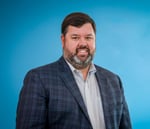 Keith has worn many hats over the course of his career, both before and during his time at Aflac. A self-proclaimed “product guy” who got his start working at Coca-Cola and Black+Decker before pivoting to insurance, Keith spent the past three years in North Ireland, building Aflac’s Center of Excellence dedicated to providing a best-in-class customer experience by leveraging emerging technologies. Now based at the company headquarters in Columbus, GA, Keith is responsible for leading Aflac’s largest division and can offer insights on how companies can keep up with rapidly changing consumer expectations.
Keith has worn many hats over the course of his career, both before and during his time at Aflac. A self-proclaimed “product guy” who got his start working at Coca-Cola and Black+Decker before pivoting to insurance, Keith spent the past three years in North Ireland, building Aflac’s Center of Excellence dedicated to providing a best-in-class customer experience by leveraging emerging technologies. Now based at the company headquarters in Columbus, GA, Keith is responsible for leading Aflac’s largest division and can offer insights on how companies can keep up with rapidly changing consumer expectations.


